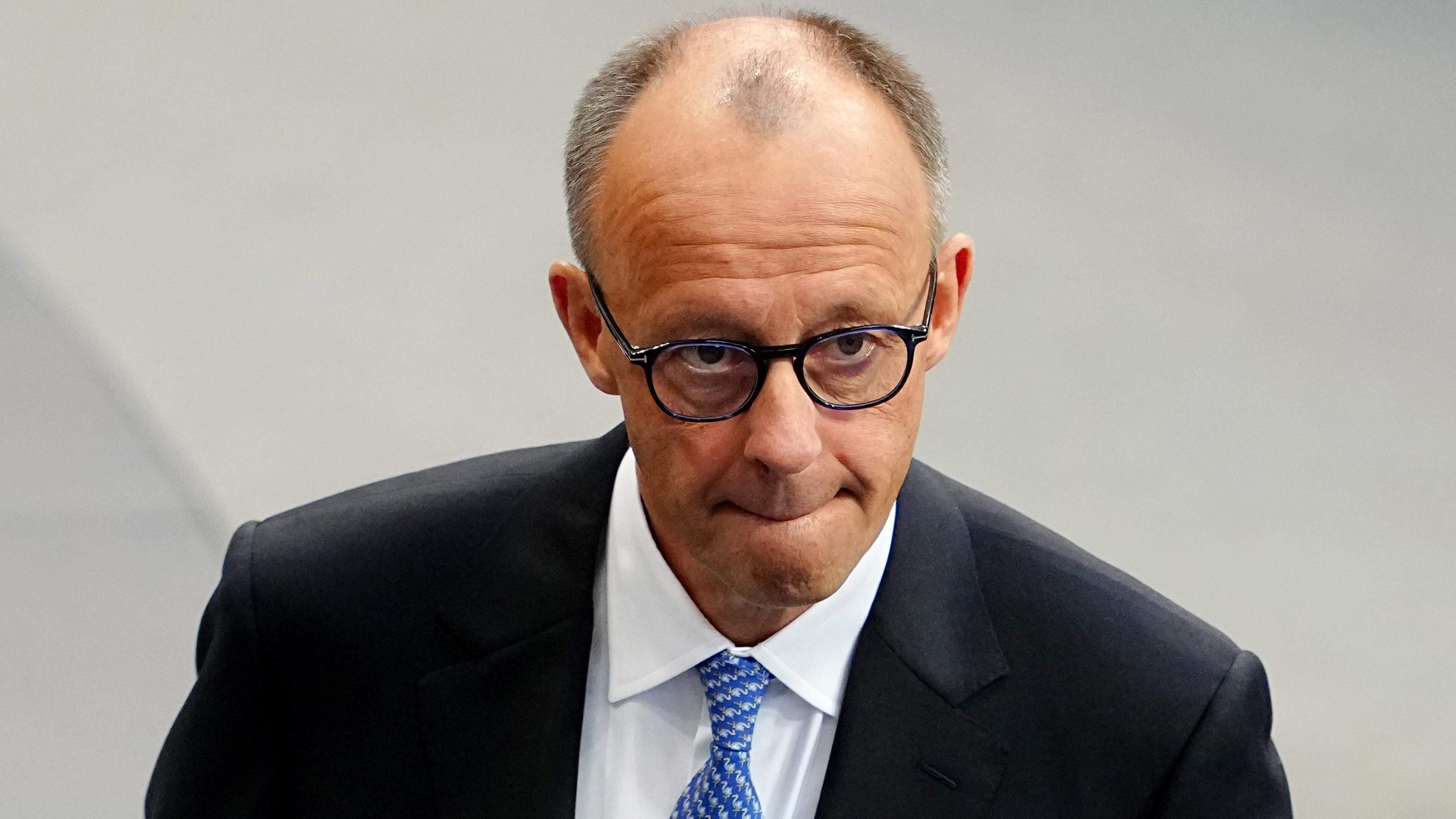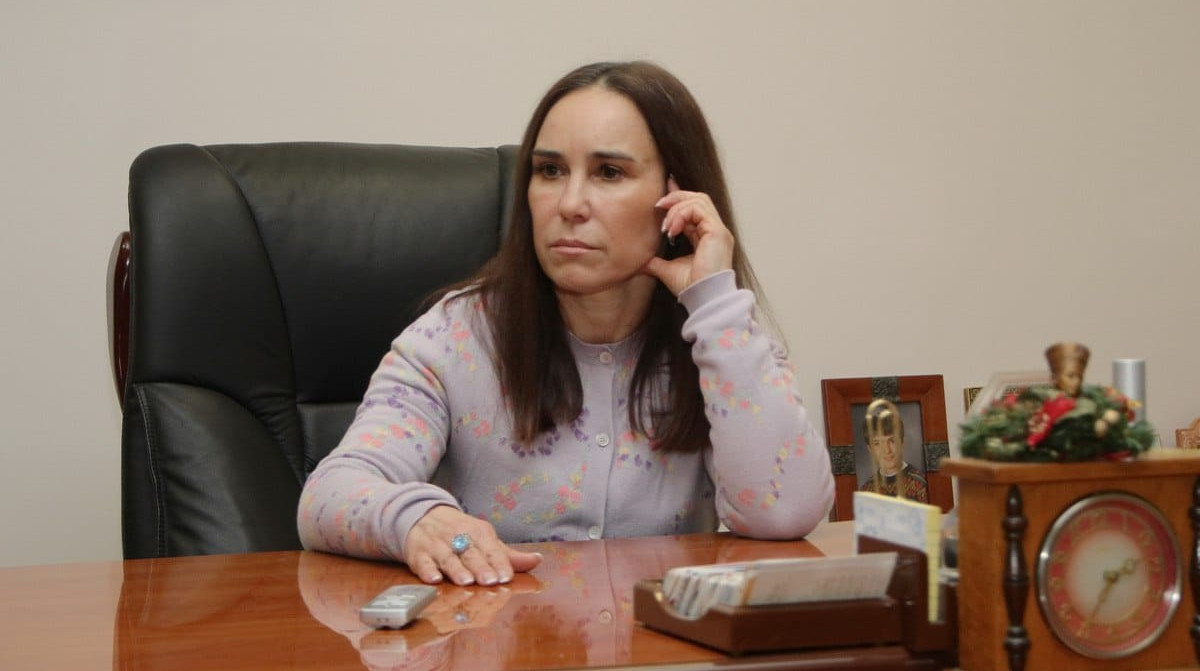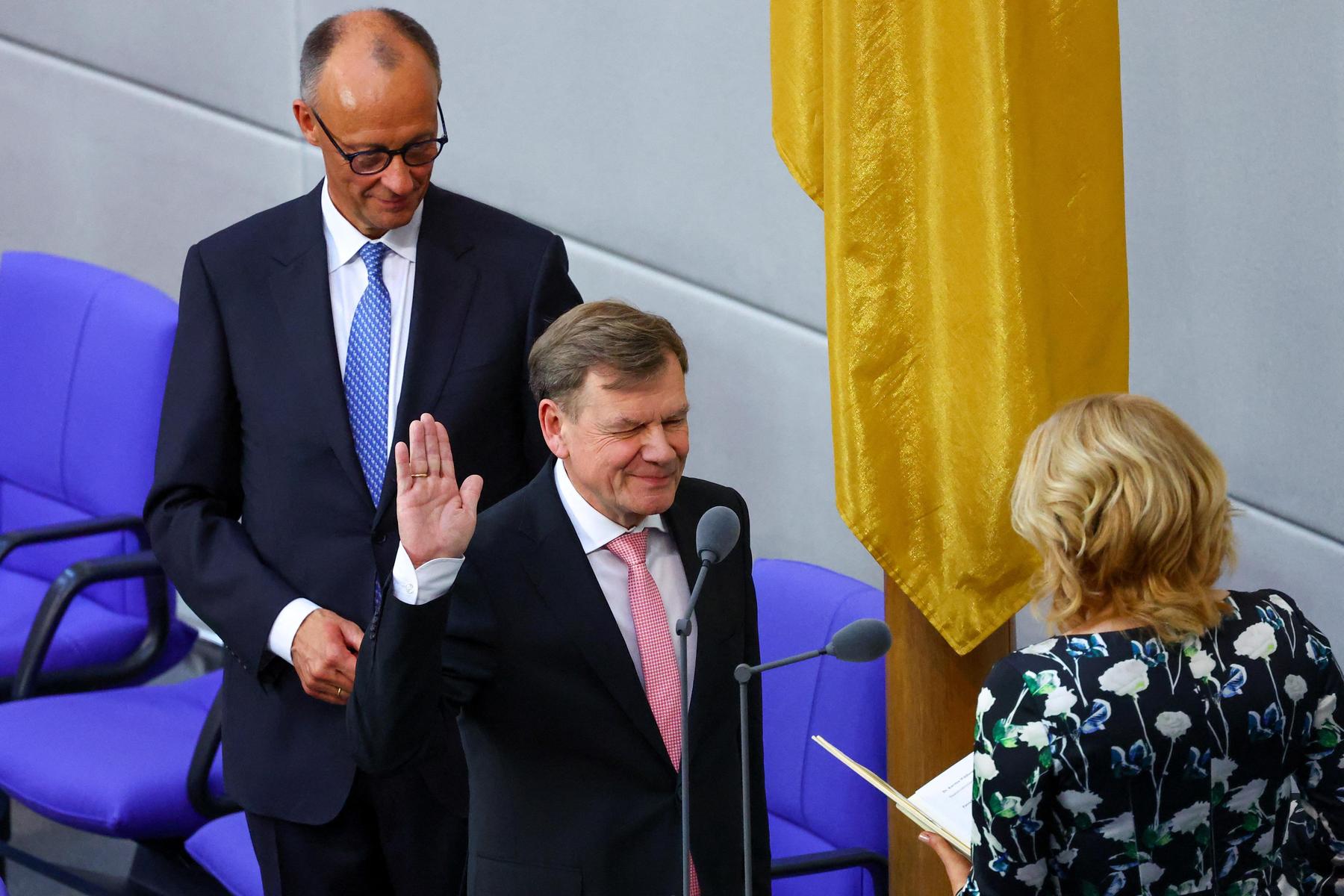Merz fails in the first ballot for the German head of government

The small rendezvous of history and personal fate is wearing a minute before nine in front of all eyes, Tuesday morning. The meeting of the Bundestag is about to begin, and the German Parliament will vote for the new Chancellor. This future and the old, somehow somehow a bit reigned in front of each other, in the plenum, and chat. As always, Friedrich Merz tends down from his 1.98 meters – Olaf Scholz, as always, does not stretch out a tiny millimeter beyond his almost 1.70. Both talk and smile – and then Scholz shrugs his shoulders for a tiny moment. If regret has a gesture: then this.
CDU politician Friedrich Merz failed on Tuesday morning in the first attempt as Chancellor. Video: Reuters
Five minutes later, Parliamentary President Julia Klöckner starts the ballot. Secret coordination, namely call. It starts with Sanae Abdi, 38, from the SPD, born in Moroccan, it ends with Armand anger, 36, also SPD, born in the camera. That says something about the Bundestag in 2025, also about Germany – but nobody pays attention to it. The celebrities in the stands of honor are more exciting for the audience and in front of the television equipment at home.
On the far left there are only three women in the front row: Charlotte Merz, wife of the future Chancellor, framed by the two daughters. On the right, politics is placed at the front: Rita Süssmuth, second president of the parliament and the women’s rights activist of the CDU, in capital letters. And next to Angela Merkel, former Chancellor, who did not see herself as a feminist – because she assessed her performance too small in this area.
Merz fails
The mood in the whole house is tidy – but special in the plenary. In front of the Federal Council Bank, the heads of government bale the federal states, welcome and hear themselves completely non -partisan and chat. Chancellor’s election also means change of government and politics; Relationship care can only be used. The AfD only remains completely below itself on the right.
The many large and even more small construction sites of the GroKo
And then, just after ten, it is getting silent down in the plenum. And circulating above: Merz is not chosen. He returns to the hall with a serious face, stops with Alexander Dobrindt (CSU), the designated interior minister. Six after ten follows the great rendezvous of history and fate, officially announced: Merz failed. It would have needed 316 votes, 328 CDU, CSU and SPD together – 310. « MP Friedrich Merz, » says President Klöckner, « did not reach the necessary majority. » Then she interrupts the session. Indefinitely.
The high house empties within minutes. Remain silence – and horror. That never happened in 20 chancellor elections. This is a disaster; First of all for the second German democracy.
The high house empties within minutes. Remain silence – and horror.
And beyond the question of who Merz refused to vote, there is also one that can be answered both procedural and politically: will there be a second ballot? This requires the opposition’s consent: left and the Greens – or AfD.
Weidel and the AfD rejoice
For the latter, co-boss Alice Weidel is in a hurry: « Mr. Merz should cede directly »-for « new elections ». Her chief partner Tino Chrupalla cheered: « A good day for Germany. »
Meanwhile, Friedrich Merz and Lars Klingbeil have talked at the parliamentary group level; The designated Vice Chancellor leaves the designated chancellor with a petrified expression. The blacks like the red start to assert, it was not due to them; You would have your people together.
Not only because the facts are others are allowed all doubts. Merz like Klingbeil have spoiled a lot of party friends with a wide -legged act -most recently when nominating their government teams. Knowns like SPD-Co chair Saskia Esken and CDU external expert Norbert Röttgen. And unknown. Successful intrigues are often spun in the back rows.
And this is the largest since the « Heidemord » 20 years ago. At that time, the Schleswig-Holstein Prime Minister Heide Simonis (SPD) lacked a voice for re-election. The majority had stood in their faction in every trial vote.
Söder sounds summary
Simonis is – politics is not just – with a sentence from this time: « And what will become of me? » In the Reichstag building, the question is now what becomes Merz and what from the little GroKo.
Merz biographer: « Europe is its real passion »
Markus Söder reports from Munich at noon at twelve. The otherwise so aggressive CSU boss and Bayern-MP sounds conjuring, almost pleading. In the Bundestag you should « remember what is at stake », he warns – and reminds of the end of the first German democracy. But everything is « still solvable, still curable », you can even « bring a good start ».
That sounds very like whistling in the deep dark cellar. If that’s not a embarrassment in front of the world – what then? In Bellevue Castle, Federal President Frank-Walter Steinmeier is waiting for sworn in, in Paris and Warsaw, where Merz wanted to fly on his first full Chancellery, you don’t know: does he come-or not?
If that’s not a embarrassment in front of the world – what then?
The decision is made after long hours until the second ballot that is not intended in a Bundestag, which now vibrates from tension. And in which Merz from the Greens and the left has to listen to his own coalitioner. The AfD calls him failed.
How the « Bavarian Napoleon » Merz is supposed to help the chancellorship
But exactly quarter to four has a new Chancellor; 325 votes for Merz. The Union stands immediately, its applause sounds more relieved than enthusiastic. The SPD remains seated. Except for Olaf Scholz.
History and fate treat themselves to a date, a very short. Scholz stretches his hand – and the old Chancellor is the very first congratulator of the new.







